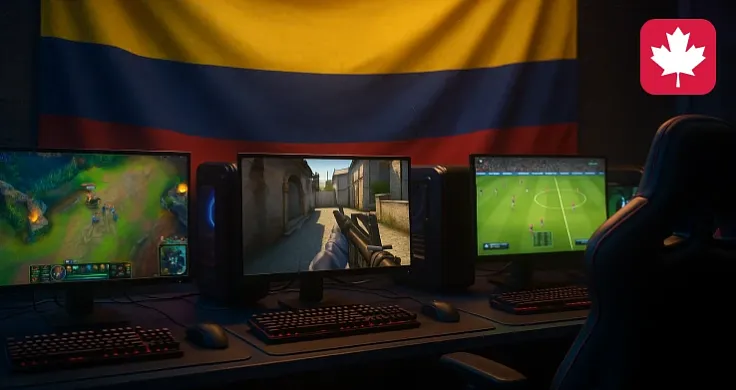
Colombia Officially Recognizes Esports: What to Expect from Law 2507
On July 30, 2025, Colombia took a landmark step that has long been a topic of discussion at industry conferences: esports has been formally integrated into the country's National Sports System. The new legislation, Law №2507, establishes a legal status for competitive video games, defines an operational framework for organizations, and sets clear tasks and deadlines for the Ministry of Sport. This is not just a bureaucratic declaration, but a roadmap for the institutionalization of the scene.
The law's key provisions are both concise and strict. The Ministry of Sport has been given six months to prepare a regulatory framework and 12 months to officially register all federations, leagues, and esports organizations. The document also establishes criteria for a game to receive "sport" status. One crucial stipulation is the prohibition of mechanics that offer a paid advantage — in simple terms, any "pay-to-win" model automatically disqualifies a game from official competitions.
The focus on regional policy and infrastructure is more than just talk. The law mandates the creation of esports centers outside of major cities and guarantees that the growth of eSports will not come at the expense of traditional sports, as funding for classic disciplines will be maintained. This appears to be an attempt to merge industry benefits with social policy, ensuring more equitable access to tournaments and training across the country.
What This Changes for the Market and the Industry
Official status resolves several key uncertainties, bringing:
- Increased legitimacy for sponsors.
- Access to government grants.
- Formalization of player contracts.
- The potential for player insurance and health protection programs.
Conversely, the law also brings stricter regulations, ranging from anti-doping standards to rules on age restrictions and the governance of federations. Game titles with aggressive monetization strategies now risk being excluded from official tournaments, while organizers may face new administrative hurdles.
The law is a starting point, not the finish line. Its ultimate impact will be determined by the specific regulations drafted by the Ministry of Sport: how exactly "pay-to-win" will be assessed, what registration and oversight rules will apply to federations, and who will be authorized to fund the new centers and under what conditions.
On paper, the law appears pragmatic — balancing industry interests with a commitment to social responsibility. In practice, its success will hinge on the people implementing it and the speed at which clear criteria and enforcement mechanisms are established.




celese Haha, classic! First they screwed over the players, then the license turned out to be fake, and now they’re trying to undo everything. A total circus. Yeah, everything will just get bought. They’ll pay whoever they need in Curaçao and get a new license. Money rules everything, especially in this industry.



Mangarin4ik The section about how casinos fire VPNs is a gun. I've never thought about WebRTC and the time zone. Author, thank you, you may have just saved my next deposit.





































It's strange that nobody is talking about the influence of bookmakers. What's to stop big money from overwhelming the scene?
In short: progress.
If they really ban pay-to-win in official disciplines, that would be fair. But who's going to enforce it?
Nice.